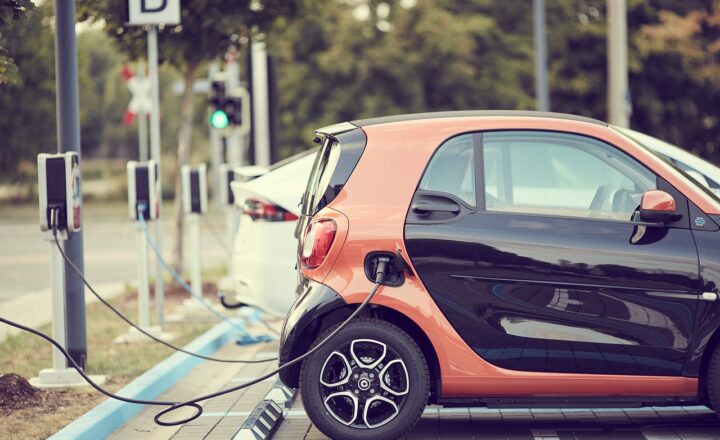Unveiling the Future: How AI is Revolutionizing the Car Industry
November 18, 2024

The automotive industry is undergoing a transformative revolution, unlike anything we have witnessed in the past. At the helm of this transformation is Artificial Intelligence (AI), a technology that has spurred innovation and led to significant advancements in various automotive applications. From enhancing safety features to paving the way for autonomous vehicles, AI is redefining what we expect from our cars and the overall driving experience.
1. Introduction to AI in the Automotive Sector
AI refers to the simulation of human intelligence in machines designed to think and act like humans. The automotive industry has been keen to incorporate AI technologies into their operations, from design and manufacturing to customer service and vehicle operation. By integrating AI, car manufacturers aim to enhance productivity, increase safety, and provide personalized experiences for drivers.
As we explore the key areas where AI is making a mark in the car industry, it becomes clear that these innovations are not just futuristic concepts but are becoming a part of our daily lives.
2. AI-Driven Safety Features
Safety is paramount in the automotive industry. AI is emerging as a pivotal force in improving vehicle safety, reducing accidents, and protecting drivers and passengers alike. Several technologies underpinned by AI are becoming standard features in modern vehicles:
- Advanced Driver Assistance Systems (ADAS): AI algorithms assist in collision detection and avoidance by analyzing data from sensors, cameras, and radar systems. Features such as lane keeping assist, adaptive cruise control, and automatic emergency braking are all influenced by AI analysis of road conditions and driver behavior.
- Predictive Analytics: By processing vast amounts of driving data, AI can predict potential hazards based on historical trends. This predictive capability allows vehicles to warn drivers of impending dangers before they manifest in real-time.
- Emergency Response & Automated Safety Systems: In the event of an accident, AI systems can automatically alert emergency services and provide real-time information about the incident, which can greatly aid in timely evacuations and medical response.
By integrating AI in safety protocols, car manufacturers are striving towards a future where driving is safer, more reliable, and less prone to human error.
3. The Dawn of Autonomous Vehicles
Perhaps the most exciting application of AI within the automotive sector is the advancement towards fully autonomous vehicles. Companies like Waymo, Tesla, and Cruise are pioneering the development of self-driving cars that utilize AI and machine learning technologies to navigate complex driving environments.
How does this work? Autonomous vehicles rely on advanced sensors and algorithms that enable them to:
- Perceive Their Environment: AI enables vehicles to recognize pedestrians, cyclists, and other vehicles on the road. This information allows the vehicle to make informed decisions, ensuring safe navigation even in challenging circumstances.
- Adapt to Changing Conditions: Self-driving cars continuously analyze data from their surroundings, such as weather conditions, traffic signals, and routes. This adaptability allows the vehicle to adjust its driving strategy in real time.
- Learn and Improve Over Time: AI algorithms improve every time they operate. With data from millions of drives, AI systems can learn from past experiences, fine-tuning their operations to enhance safety and efficiency.
While fully autonomous vehicles may not be commonplace yet, companies are conducting extensive testing to ensure that when they arrive, they will significantly reduce traffic accidents and make transportation more efficient.
4. AI in Vehicle Manufacturing and Design
The integration of AI is also revolutionizing vehicle manufacturing and design. Car manufacturers are leveraging AI technologies to:
- Improve Production Efficiency: AI helps streamline manufacturing processes, reducing waste and lowering costs by predicting equipment failures, optimizing supply chains, and automating quality control processes.
- Enhance Vehicle Design: AI-driven design tools allow engineers to analyze data and create detailed simulations that facilitate innovative vehicle designs. This enhances not only aesthetics but also performance and safety features.
- Drive Sustainability Efforts: With AI, manufacturers can track and analyze their resource consumption during production, identifying opportunities for sustainable practices and reducing their environmental footprint.
These advancements usher in a new era of car manufacturing and design, aiming for efficiency, sustainability, and superior quality.
5. AI in Customer Experience and Personalization
As cars evolve into smart devices, AI is enhancing customer experience in several fascinating ways:
- Voice Recognition and Control: Many new vehicles include voice-activated systems that allow drivers to control navigation, music, and other features hands-free, enhancing convenience and safety on the road.
- Personalized Driving Experience: AI systems gather data on driver preferences and adjust settings such as seat position, climate control, and entertainment options, creating a tailored driving environment.
- Predictive Maintenance: AI analyzes vehicle performance and alerts drivers to potential issues before they escalate into major problems. This proactive approach to maintenance improves vehicle longevity and reliability.
By employing AI to personalize customer experiences, car manufacturers foster a higher level of satisfaction, engagement, and loyalty among drivers.
6. Challenges and Considerations
While the future looks bright with AI, several challenges and ethical considerations must be addressed:
- Data Privacy and Security: As vehicles become more connected, they collect vast amounts of data. Ensuring the security of this data and maintaining customer privacy is a growing concern that manufacturers must address effectively.
- Ethical Implications of Autonomous Driving: As self-driving technology continues to develop, ethical dilemmas arise, such as how vehicles should respond in the event of an unavoidable accident, raising questions about responsibility and insurance.
- Public Acceptance: The transition to AI-powered vehicles, especially autonomous ones, will require public education and trust-building, as many consumers remain cautious about relinquishing control to machines.
Addressing these challenges will be crucial to unlocking the full potential of AI in the automotive industry.
7. Conclusion: The Road Ahead
The integration of AI within the automotive industry is set to create landmark changes in how we understand and interact with vehicles. With advancements in safety protocols, autonomous driving capabilities, manufacturing processes, and customer experiences, AI is not just reshaping the car industry; it’s impacting society at large.
As we look toward the future, it is evident that AI holds the key to innovations that will make driving safer, more efficient, and infinitely more enjoyable. However, the real test will lie in balancing technological advances with ethical considerations and public acceptance.
With AI driving the charge, the road ahead looks promising, revolutionizing the way we experience mobility in our day-to-day lives.







